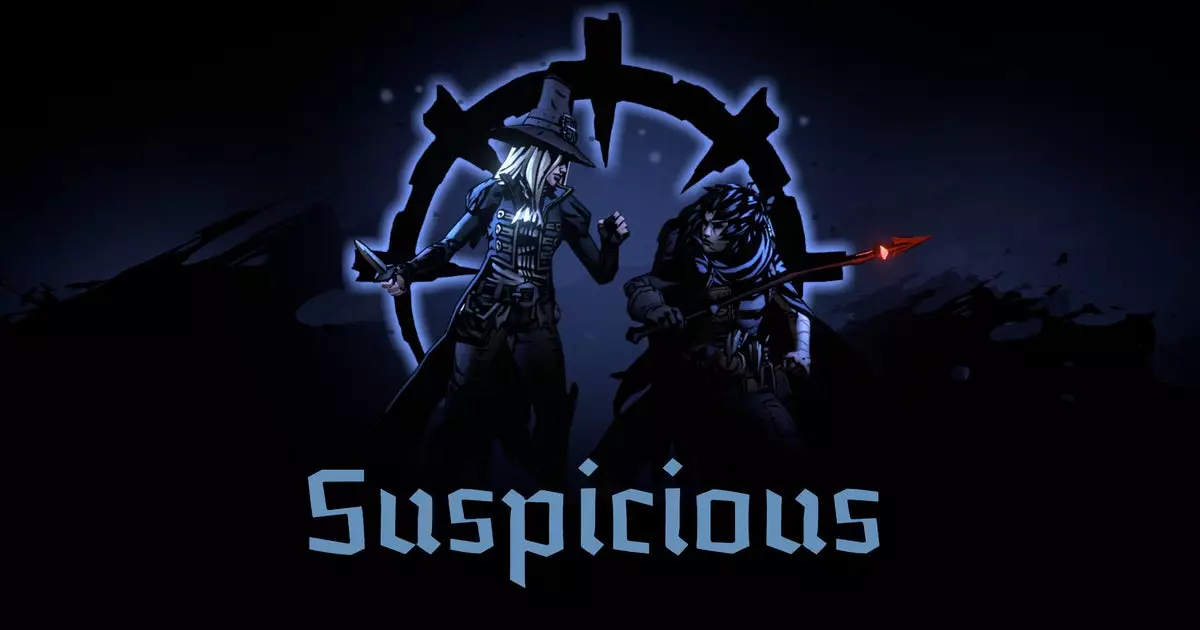The gaming industry is no stranger to acquisitions, often sparking a mix of excitement and skepticism among fans and commentators alike. Recently, we witnessed Behaviour Interactive’s decision to acquire Red Hook Studios, the talented minds behind the critically acclaimed role-playing game, Darkest Dungeon. This acquisition raises several questions concerning the future of both studios, the implications for the horror genre, and the delicate balance between independence and corporate influence.
Behaviour Interactive is well-known for its survival horror game, Dead by Daylight (DBD), which has garnered a dedicated fanbase since its release. However, the company’s recent history is marred by layoffs, a game cancellation, and the shuttering of an entire studio, Midwinter Entertainment. Critics often point out that these decisions may reflect an internal struggle or a broader issue within the company. The acquisition of Red Hook, while strategically aligned with Behaviour’s aim to deepen its roots in the horror genre, may be viewed as a means of countering past setbacks with a bold new direction.
The so-called “horror synergy” between Behaviour and Red Hook is palpable, yet it presents a paradox. Both studios are celebrated for their contributions to the horror landscape, yet their operational philosophies differ. Red Hook gained acclaim for crafting a challenging yet deeply engaging experience in Darkest Dungeon, while Behaviour’s approach has been to create a multiplayer horror platform that heavily borrows from and integrates characters from existing horror franchises. This juxtaposition prompts an inquiry into how the merger might affect each studio’s distinct creative process.
One of the most baffling aspects of the acquisition is Behaviour’s assurance that Red Hook will remain an “independent” studio. This term often serves as a comforting catchphrase for fans concerned about corporate takeover, but its meaning can vary significantly in practice. The nuances of this independence remain vague, particularly regarding how much creative autonomy Red Hook will have moving forward. While Behaviour claims to support Red Hook’s vision, the question lingers: what exactly does that support entail?
Chris Bourassa, co-founder of Red Hook, has lauded Behaviour as “kindred spirits,” celebrating their shared Canadian heritage and passion for horror games. However, one cannot help but notice potential pitfalls in this alignment, especially when one studio might be pressured to conform to the operational strategies of another. The prospect of Behaviour’s influence looms large, as it seeks to expand its horror game library, possibly at the expense of Red Hook’s unique artistic direction.
Behaviour’s CEO, Rémi Racine, describes the acquisition as a necessary move to bolster Behaviour’s footprint in the horror genre. He paints a vision of a collaborative future where both studios work together to develop exceptional horror games. This ambition is admirable; after all, diversity in horror can lead to innovative gameplay experiences. However, there is a fine line between collaboration and overreach.
Further complicating the scenario is Behaviour’s history of cannibalizing other horror franchises, as demonstrated by the entries in DBD. If past experiences are any indication, one might fear that Red Hook’s characters and thematic elements could be contorted to fit into the DBD universe, diminishing their distinct identity. Indeed, if the Entity — a powerful force within the DBD narrative — were to ‘abduct’ elements from Darkest Dungeon, it would raise alarm bells for purists who admire the originality of Red Hook’s offering.
As Red Hook gears up for a kingdom-sized expansion of Darkest Dungeon 2, the atmosphere is tinged with anticipation and concern. Fans are eager for more content, but many are apprehensive about the integration of Behaviour’s oversight potentially stifling their creative output. The community’s reaction remains mixed, with some expressing distrust in the relationship formed between the two studios.
Ultimately, the success of this acquisition will depend on Behaviour’s ability to maintain Red Hook’s creative security while providing the necessary resources for growth and development. This delicate balance could set the stage for innovative breakthroughs in the horror gaming landscape or lead to a regrettable dilution of Red Hook’s celebrated creative essence. As the gaming world watches closely, the collaboration could either herald a new era of ambitious horror titles or unravel into an awkward mismatch of corporate aims and creative dreams.


Leave a Reply